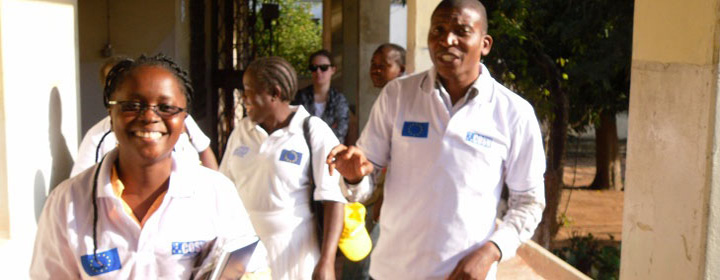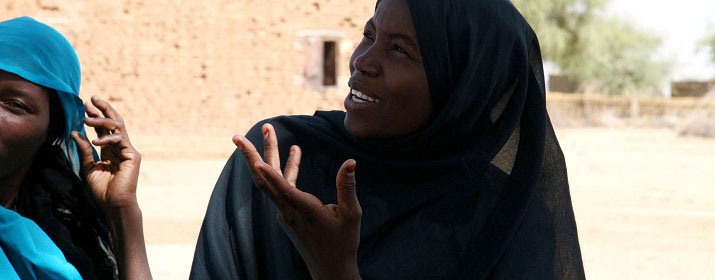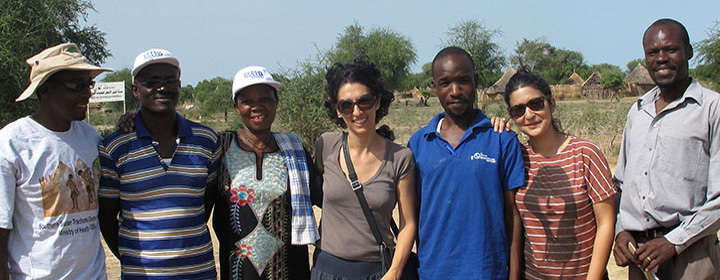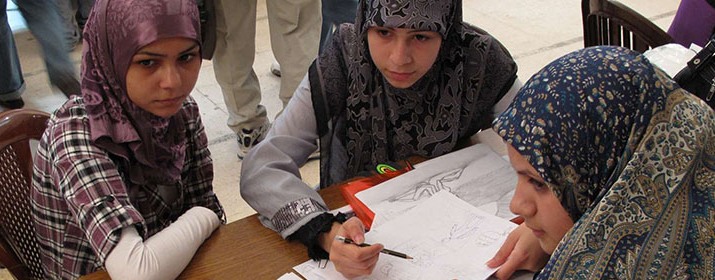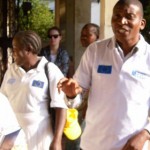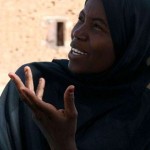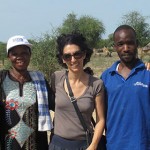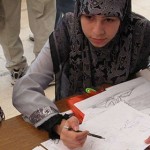When did you start working with COSV? And how?
I started in 2007. I read the vacancy for the position of logistician published by COSV in Kulbus, and I introduced myself. Three expatriates were doing the selection: Jennifer Oko, Kenyan, Trunji Mohamed, of Somali origin and Virna Bolognesi, coordinator of the health program from Italy. They were looking for someone local who could coordinate the logistics of the projects launched two years earlier in Kulbus and to replace the former logistics officer who had been moved to Geneina. I did all the tests, both written and oral, but the results were not communicated immediately; the three expatriates, after carrying out various tests to all candidates, came back to Khartoum and returned to Kulbus after a week to announce the results of the selection: I was hired as logistician, and another in charge of the pharmacy of the PHCC (primary health care center) of Kulbus.
What does it mean for you working for an NGO?
Working with an NGO gave me the opportunity to enhance my skills and acquire new skills, allowed me to open my eyes to new technologies, new people, new cultures, new faces, to meet people from Kenya, Italy, from many places in the world … sometimes I feel like I can fly from happiness to work in such an environment and the changes that this work has brought into my life… without the collaboration with an NGO, all this would never have happened.Working with all these people from different places, it makes me imagine myself find out of Kulbus and Sudan, in Italy …
How is your involvement in an international NGOs perceived within your social context?
The community, family, friends are happy, proud that some of them work with an international NGO; it is perceived as a big change.
The only problem is that people sometimes think that, just because I work with an international NGO, I have large sums of money, so they comes to me for help and support, as if I could take charge and solve everyone’s problems … some are also jealous because they want to be in my position.
What do you think is the main impact of the job you are doing?
I followed and supervised the construction of the various health centers and the people are very grateful to me… it is a tangible sign that the program COSV is carrying out is very good … before this intervention, there was no health service except the central hospital of Kulbus.
Which are the main challenges, frustration or changes that you have experienced in these years?
In recent years, various managers, many expatriates have gone to work in Kulbus, each with its own methodology…it has not always been easy to adapt to each of them, but I always tried to accept and cooperate.
One of the most negative experiences dates back to 2011: as an administrator, I used to receive funds from Khartoum and Geneina, and I had full confidence in colleagues. In Kulbus there are no banks or money transfer, then the funds are transferred in cash, and I usually were delivered by the health coordinator, who at the time was Dr. Ahmed Garib .
The night before sending money, I had a dream that I was handed the envelope that was empty.
The next morning, when Dr. Garib arrived in Kulbus and handed me the envelope and the usual receipt to sign, I refused to put my signature until a Committee could control with me the content of the envelope.
The Doctor agreed, so we called a few trusted people and we opened the envelope and counted the money: there were 6000 Sudanese pound less!
Luckily I listened to my dream, otherwise I do not know how I could justify that difference.
I was very annoyed and I reported the incident to Khartoum…since then I always check very carefully the contents of the envelopes in the presence of another staff person.
Which have been the most meaningful experiences?
A good memory: I remember with pleasure working with the Italian coordinator, Chiara Lizzi, who had also recognized our commitment increasing our wages.
Another good memory is the inauguration of the center of Adawi, in the Dar Mokutar, an area still under rebel control…it was very brave to challenge the presence of the rebels and decide to cross their territory and to build there a health center that would provide the necessary services to the population.

